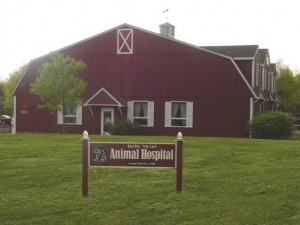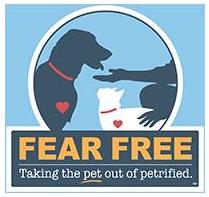
April 2015 – Spring Rabies Awareness
With spring comes new warnings about protecting your pets against Rabies. Rabies is a viral infection of the central nervous system (brain and spinal cord) that can affect all warm-blooded animals. The virus is excreted in the saliva of an infected animal and transmitted by a bite or contamination of open wounds.
Many species of wildlife can carry the virus including bats, raccoons, foxes, skunks and groundhogs.
Because bats have now ended hibernation or returned from southern climates, they are presently active in New Jersey. We therefore expect more bat exposures and bats entering homes until they hibernate or migrate in the late fall.
According to the Somerset County Department of Health, the bat variant rabies virus cycles predominately among the bat population and is a significant public health concern because the majority of human rabies cases acquired in the United States are from bat exposures. However, all mammals are susceptible to all variants of the rabies virus.
New Jersey has both bat and racoon rabies virus variants existing in separate ecologic cycles in the State. Raccoons cycle the raccoon variant, and the wildlife species most commonly infected by rabid raccoons in order of incidence are skunks, foxes and groundhogs.
Free roaming cats are of particular concern, as their exposure to the virus through contact with raccoons or other wild animals is statistically higher than dogs. We therefore encourage cat owners especially to keep their felines current with Rabies vaccinations and try to house them exclusively indoors or at least contained on a property to minimize their contact with potential rabies carriers such as raccoons or other wildlife.


We recommend you vaccinate all your pets – dogs, cats and ferrets. It is also recommended that owners of other domestic animals such as horses and livestock vaccinate their animals, especially if the public has access to the animals. Unvaccinated domestic animals can contract rabies from wild animals and transmit the infection to humans.


Furthermore, there is no treatment for rabid animals, which is why it is so important to vaccinate your pets and livestock against the disease. If your domestic animals are unvaccinated and exposed to a potentially rabid animal, they may have to be kept in strict isolation for months, or unfortunately even be euthanized. We know this sounds harsh, but New Jersey state law outlines strict procedures that must be followed in order to protect people and pets from this deadly disease.
Please talk to your veterinarian. There are safe and effective vaccines to protect dogs, cats, ferrets and most livestock against rabies. Your entire family will benefit.
Recommended Reading:
Pets, Bats and Rabies – Important information for pet owners
Important information about Rabies from the Somerset County Dept of Health
Belle Mead Animal Hospital, Your Other Family Doctors
LIKE us on Facebook, Follow us on Twitter @BMAH121 and Join our Circle at Google+ for news and pet wellness tips.










